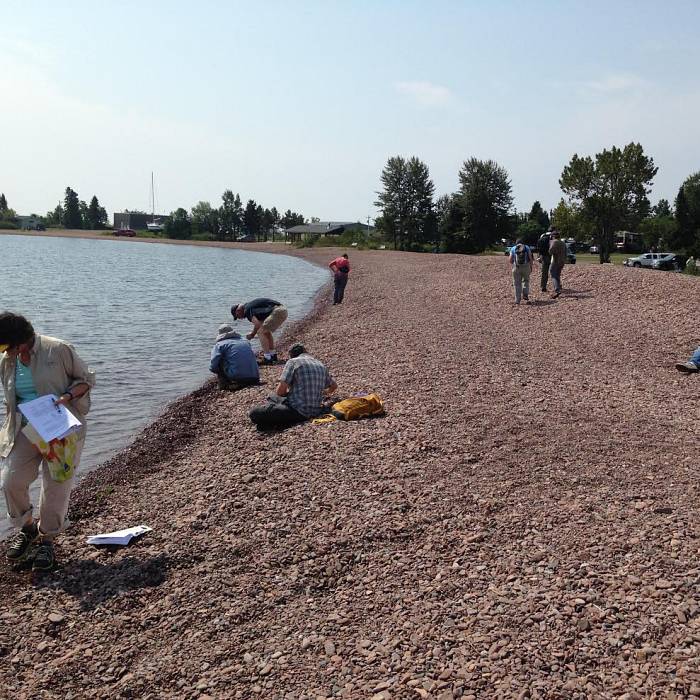
Northern Ecology
What's this Rock Too? Central North Shore's Geologic Story
Course Overview
How many times have you walked along a cobbled beach or a rocky ledge along the North Shore and wondered, “What’s this rock? Where did it come from? Why is it here?” Well, lace up some sturdy footwear and head into the field to be immersed in the fascinating geology of the central part of Minnesota's North Shore with UMD emeritus geology professor Jim Miller. This is a second in the “What's This Rock?” series of coursework, but does not need to be taken sequentially. This course will focus on “reading” rocks that tell part of the billion-year-old geological story of the Lake Superior area—a tale of fire and ice. However, What's This Rock Too will visit roadcuts and shoreline exposures that illustrate the volcanic and glacial history of the central part of Minnesota's North Shore. After an introductory presentation on Friday night, the class will travel by mini bus to Tettegouche State Park on Saturday morning and visit classic North Shore exposures on the way back to Grand Marais. The field trip will include stops at Tettegouche State Park, Caribou River, Sugarloaf Interpretive Center, and Temperance River State Park. Sunday morning class will carpool and start out with a hike up the Cascade River, followed by viewing roadcuts of the gemstone Thomsonite, and then rock-hounding on the shore of Lake Superior in Grand Marais. After this excursion, you’ll never see the North Shore the same way again, too! Students ages 12 and up are welcome to participate with an adult; a 25% tuition discount applies; call to register. The materials fee for this class includes the cost of transportation on Saturday to sites to reduce the driving necessary for this course and to promote group discussions.
Note, field stops on Saturday and Sunday will visit roadcuts along Highway 61 as well as rock exposures along or near the shore. Most stops will involve short walks (<.25 mile) along roads or hiking trails with slight to moderate inclines and several stops will require walking along cobbled beaches or uneven rock surfaces. As such, participants with mobility issues or a poor sense of balance are discouraged from participating
Required Tools
- sturdy footwear
- rain gear
- hat
- water bottle
- lunch for Saturday
Optional Tools
- camera
- for safety reasons, rock hammers are not allowed
- all participants will be given a high-visibility orange vest to wear during field stops
